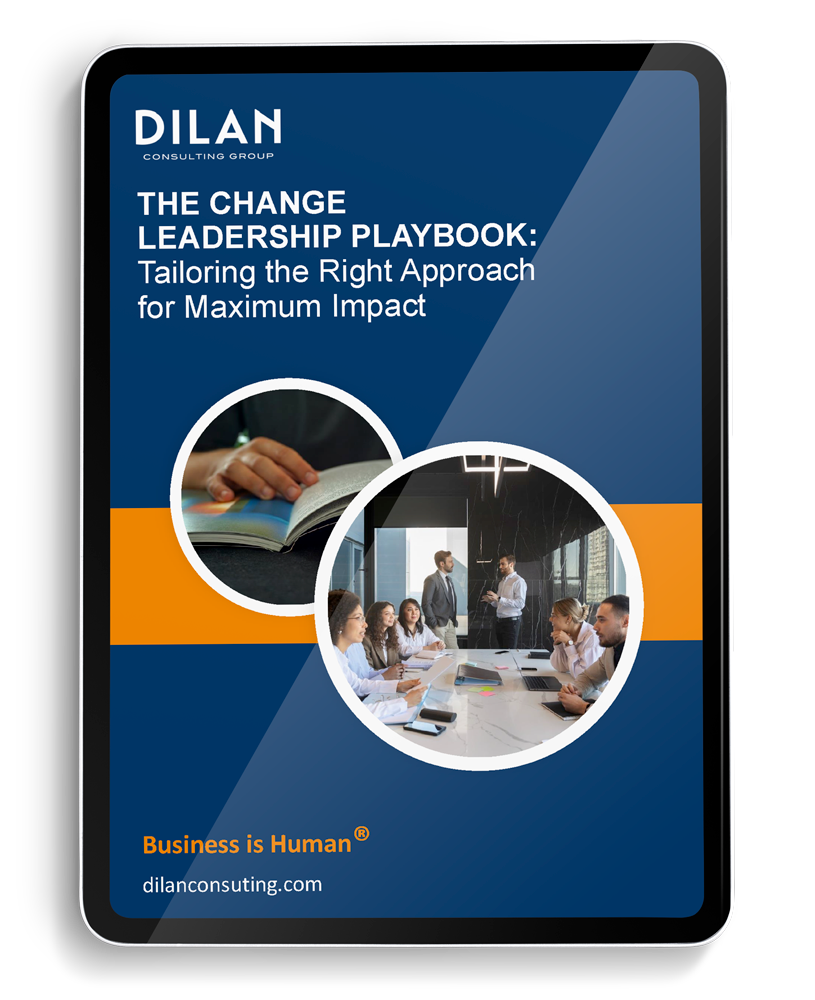Imagine walking into a workplace where everyone feels valued, respected, and truly part of the team. It’s a place where diverse voices are heard, innovative ideas flourish, and employees are genuinely engaged. This isn’t just a dream but a reality for companies that prioritize Diversity, Equity, Inclusion and Belonging (Inclusion & Belonging). Despite the undeniable benefits, Inclusion & Belonging initiatives have faced backlash and skepticism. This article aims to address these concerns and showcase how Inclusion & Belonging can significantly enhance employee engagement, supported by data from UKG, Gallup, and Workday.
Understanding the Backlash
Critics argue that Inclusion & Belonging efforts can lead to divisiveness, tokenism, or even reverse discrimination. Some believe these initiatives are just corporate lip service without tangible benefits. It’s essential to address these concerns head-on with evidence and practical examples of Inclusion & Belonging’s positive impact.
The Inclusion & Belonging Landscape and Its Importance
Inclusion & Belonging initiatives are designed to create a workplace where every employee feels valued, respected, and included. This environment fosters higher levels of engagement, which in turn drives productivity, innovation, and overall business success. According to a 2023 report by Gallup, organizations with robust Inclusion & Belonging practices see a 22% higher productivity rate and 27% higher profitability compared to those without. Similarly, Workday’s 2022 Employee Experience Survey found that 78% of employees in companies with strong Inclusion & Belonging practices reported higher job satisfaction .
Measuring Inclusion & Belonging: Beyond Traditional Metrics
Traditional metrics such as employee turnover and productivity rates are no longer sufficient to gauge the true impact of Inclusion & Belonging. We need to look beyond these numbers to understand the qualitative aspects of employee engagement influenced by Inclusion & Belonging. Here are some critical metrics to consider:
1. Employee Sentiment and Belonging
Employee sentiment is a powerful indicator of engagement. Surveys and feedback tools can help measure how employees feel about their workplace. UKG’s 2022 Workforce Insight Report highlighted that 70% of employees who feel a sense of belonging at work are more likely to stay with their company for over five years. Workday’s findings echo this, showing that 65% of employees feel more committed to their organization when they perceive a strong sense of inclusion .
2. Inclusive Leadership
Leadership plays a pivotal role in promoting Inclusion & Belonging. Inclusive leaders who actively engage with their diverse teams can drive higher engagement. Gallup’s 2021 research found that teams with inclusive leaders are 17% more likely to report feeling highly engaged at work. Workday’s research supports this, indicating that 73% of employees with inclusive managers feel a greater sense of belonging .
3. Career Development Opportunities
Providing equitable career development opportunities is essential for maintaining high levels of engagement. UKG found that 65% of employees are more engaged when they perceive their career progression paths as fair and attainable. Workday’s data further reveals that 68% of employees who see clear career advancement opportunities are more motivated to perform well .
The Impact of Inclusion & Belonging on Employee Engagement
Inclusion & Belonging initiatives directly influence several aspects of employee engagement:
1. Increased Innovation and Creativity
Diverse teams bring a variety of perspectives and ideas, leading to increased innovation. Gallup’s 2022 report states that companies with high diversity levels are 45% more likely to improve their market share year over year. Workday’s research also shows that 80% of executives believe that fostering diversity in teams enhances innovation .
2. Enhanced Employee Well-being
A workplace that values Inclusion & Belonging fosters a supportive environment where employees feel comfortable being themselves. This leads to improved mental health and overall well-being, which are critical components of engagement. UKG’s data shows that employees in inclusive workplaces are 28% less likely to experience burnout. Workday’s survey indicates that 74% of employees in diverse and inclusive workplaces report better overall well-being.
3. Stronger Employee Loyalty
When employees feel included and valued, their loyalty to the company strengthens. This loyalty reduces turnover rates and attracts top talent. Gallup’s findings indicate that inclusive workplaces experience a 50% reduction in turnover rates. Workday reports that 72% of employees in inclusive environments plan to stay with their current employer for the long term .
Dispelling Concerns and Embracing Inclusion & Belonging
Implementing effective Inclusion & Belonging strategies requires commitment and actionable steps. Here are some suggestions to improve engagement through Inclusion & Belonging and address common concerns:
1. Conduct Regular Inclusion & Belonging Training
Regular training sessions on Inclusion & Belonging can help employees understand the importance of diversity and inclusion. This training needs to be mandatory for all levels of the organization to ensure everyone is on the same page and to mitigate fears of tokenism.
2. Foster Open Communication
Encourage open and honest communication about Inclusion & Belonging. Create safe spaces where employees can share their experiences and suggestions without fear of retribution. This openness helps in identifying areas for improvement and fosters a culture of inclusivity.
3. Implement Mentorship Programs
Mentorship programs that pair diverse employees with senior leaders can help in career development and enhance engagement. These programs provide guidance, support, and a clear path for career advancement, dispelling fears of inequity.
4. Regularly Review and Update Policies
Policies related to Inclusion & Belonging should be reviewed and updated regularly to reflect the evolving workplace dynamics. This ensures that the organization remains committed to its Inclusion & Belonging goals and addresses any emerging challenges effectively.
5. Measure and Share Progress
Regularly measuring the impact of Inclusion & Belonging initiatives and sharing this progress with the entire organization is crucial. Transparency in these metrics builds trust and shows the company’s commitment to Inclusion & Belonging, countering claims of corporate lip service.
Conclusion
The impact of Inclusion & Belonging on employee engagement is profound and multifaceted. By understanding and leveraging the right metrics, organizations can create a more inclusive and engaging workplace. The data from UKG, Gallup, and Workday clearly shows that Inclusion & Belonging is not just a moral imperative but a business necessity that drives innovation, well-being, and loyalty. I predict that three-years from now, organizations with robust Inclusion & Belonging programs will continue to significantly outperform their peers and you don’t want to be left behind. Whether you’re starting a Inclusion & Belonging program for the first time or looking to raise your game, the DILAN team are ready to help. Please feel free to contact me; I’d be happy to be your thought partner on this critical topic. By adopting practical strategies and continuously measuring progress, organizations can enhance their Inclusion & Belonging efforts and, in turn, significantly boost employee engagement – not to mention your bottom line.




